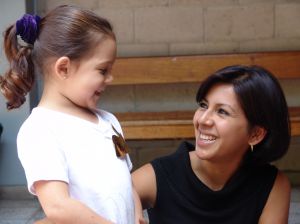 This is not an easy time to be a teacher. When you factor in the draconian budget cuts affecting most districts, as well as the often inflamed rhetoric about many of the issues facing American schools these days, it’s easy to see why an already tough job is getting even harder. I’ve taught English in a public high school for fourteen years now, and one thing I’ve noticed is that teachers very often end up bearing the brunt of society’s frustration over the problems in our country. I'm not entirely sure why that is. Maybe it's an implicit recognition of the importance of our job. Perhaps it's flattering to think that we teachers have so much influence that we can singlehandedly counteract all the things that threaten our students’ well-being, things like media overexposure, poverty, or problems at home. It's flattering, perhaps, but not very realistic. The truth is, we teachers do what we can with the time and resources we have. The sad thing is that both often end up being inadequate to accomplish everything we'd like to achieve.
This is not an easy time to be a teacher. When you factor in the draconian budget cuts affecting most districts, as well as the often inflamed rhetoric about many of the issues facing American schools these days, it’s easy to see why an already tough job is getting even harder. I’ve taught English in a public high school for fourteen years now, and one thing I’ve noticed is that teachers very often end up bearing the brunt of society’s frustration over the problems in our country. I'm not entirely sure why that is. Maybe it's an implicit recognition of the importance of our job. Perhaps it's flattering to think that we teachers have so much influence that we can singlehandedly counteract all the things that threaten our students’ well-being, things like media overexposure, poverty, or problems at home. It's flattering, perhaps, but not very realistic. The truth is, we teachers do what we can with the time and resources we have. The sad thing is that both often end up being inadequate to accomplish everything we'd like to achieve.
On a personal level, it's funny to think that I've been teaching high school as long as some of my students have been alive. That's pretty eye-opening. And here's an interesting fact about teaching: I am a much better teacher now than I was when I started. No, I'm not in any way perfect. Yes, I have much less youthful energy than when I began teaching, along with many more demands on my evenings and weekends (becoming a mom will do that, oddly enough). But all the same, I have a much bigger toolbox than I did way back when. If a difficult situation comes up in the classroom, odds are good that I've encountered it before. I've also learned what all teachers eventually discover, which is that you need to alter your persona subtly depending on which class of kids you are teaching: one period may require you to be ever-so-slightly authoritarian, another period may be able to handle the driest of your dry humor, another period may require you to bring out your "mom-voice," another period might make you feel more like a wise older sister than anything else. It's tricky to find the right persona, but it's what teachers do. And in a wacky paradox, those personas only work if you are still truly yourself underneath it all.
So I guess what I really want to say is that we teachers do an exhausting, highly complex task day after day. We don't get big financial rewards. (We do get a nice summer vacation but, as a former colleague once said, that's not vacation -- it's comp time.) And sometimes we get to witness the extent of our students' progress, and sometimes we don't. When you teach English as I do, you don't get to see the student who, at the age of twenty-five, re-reads The Grapes of Wrath and suddenly remembers a discussion from your English class, only to find that discussion resonating with him in a way he could never have anticipated when he was seventeen. As Jacques Barzun wrote, “In teaching you cannot see the fruit of a day's work. It is invisible and remains so, maybe for twenty years.” That's often frustrating, but it's the nature of the beast.
So if you have read this far, and if you know a teacher, hug him or her. (If she's your son's severely-dressed biology teacher and you don't feel comfortable with a bearhug, a little card at the end of the year is always nice.) Believe me: we appreciate knowing that people value us.
And the truest thing I can say about teaching is this: like parenting, it's not always easy, and it's not always fun. But just like parenting, it is something that you always know, deep in your gut, is worth doing.
Copyright 2011 Ginny Kubitz Moyer
About the Author

Guest
We welcome guest contributors who graciously volunteer their writing for our readers. Please support our guest writers by visiting their sites, purchasing their work, and leaving comments to thank them for sharing their gifts here on CatholicMom.com. To inquire about serving as a guest contributor, contact editor@CatholicMom.com.


.png?width=1806&height=731&name=CatholicMom_hcfm_logo1_pos_871c_2728c%20(002).png)
Comments